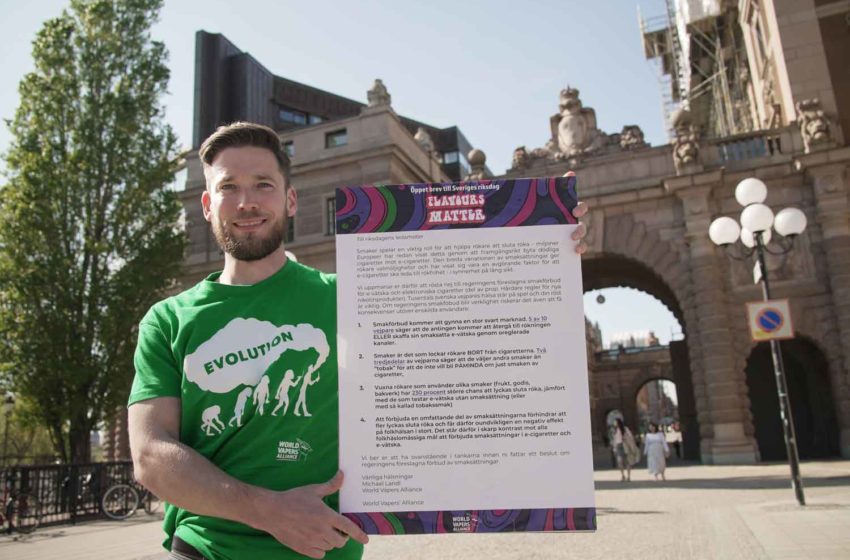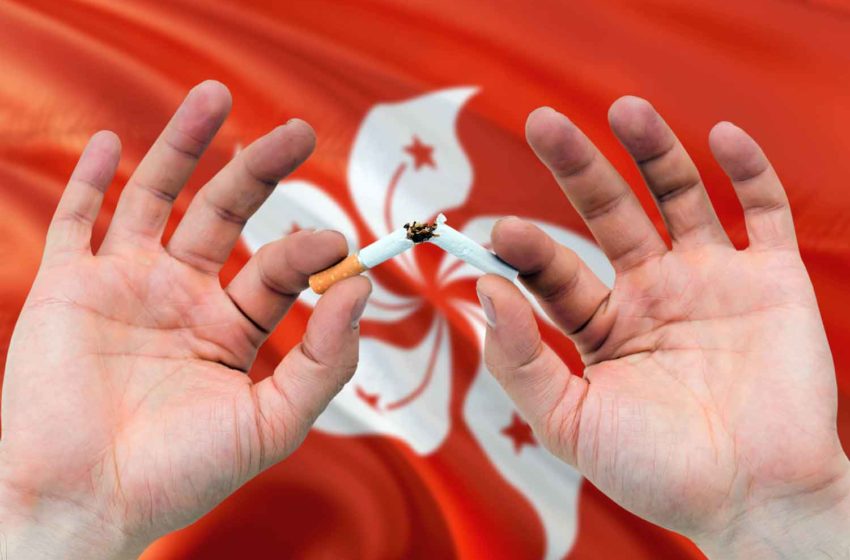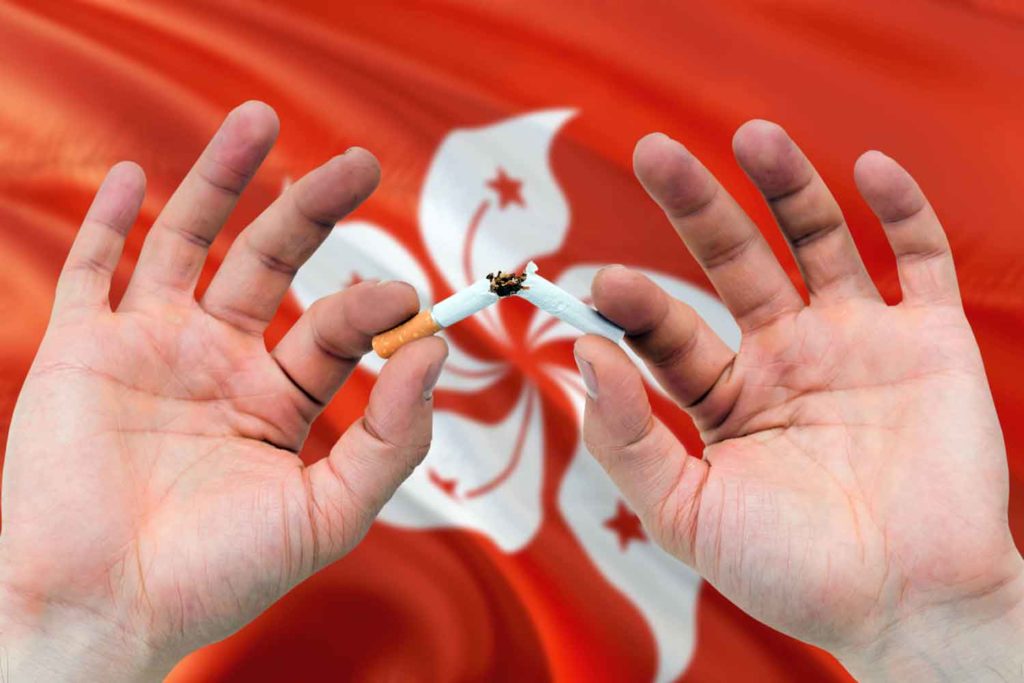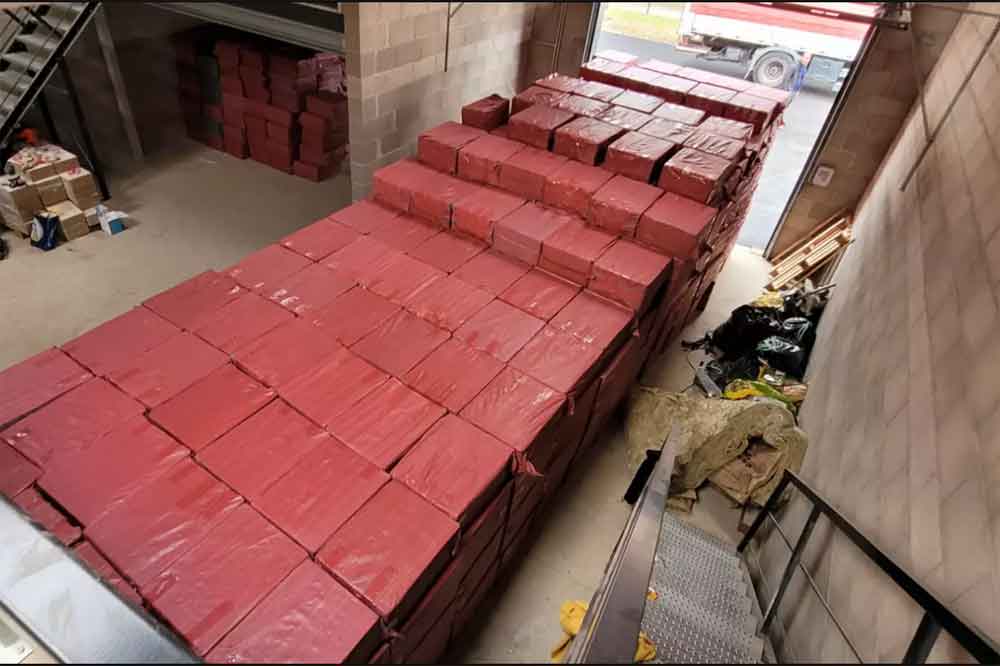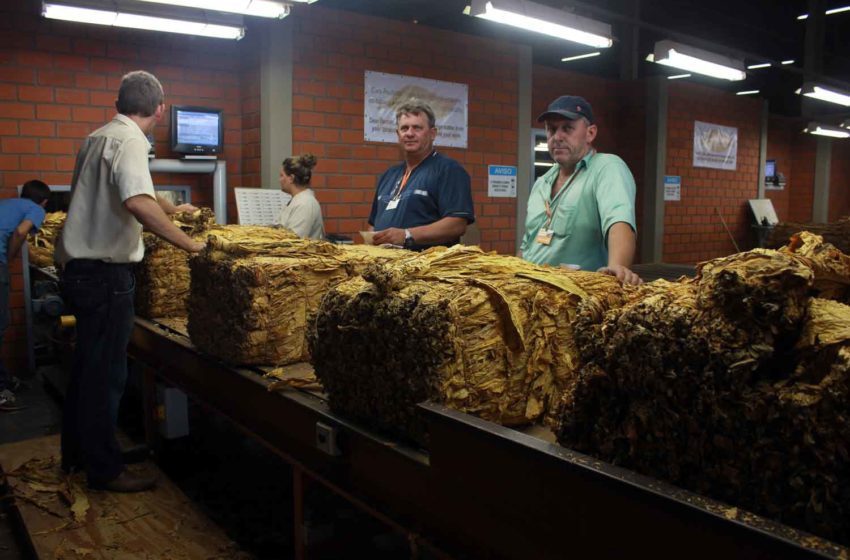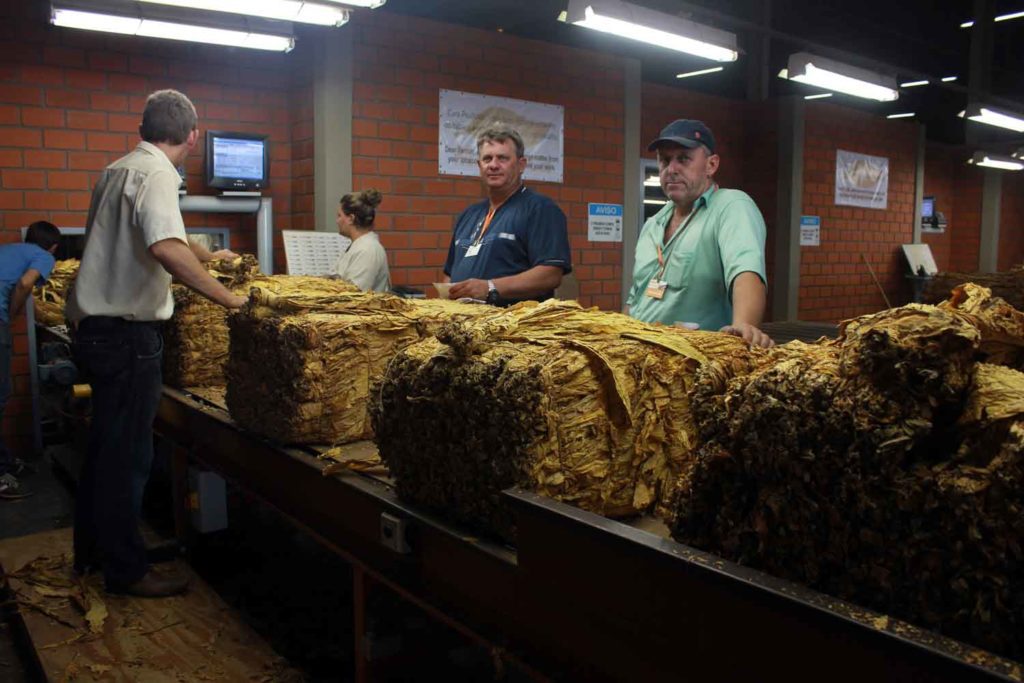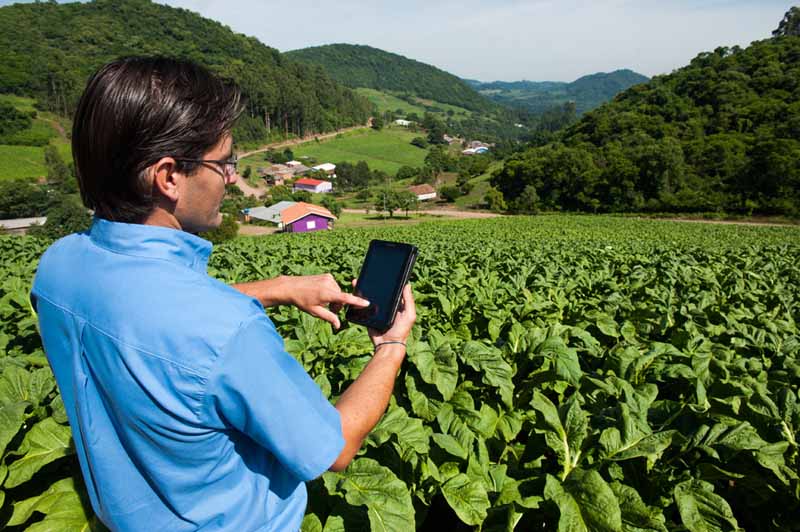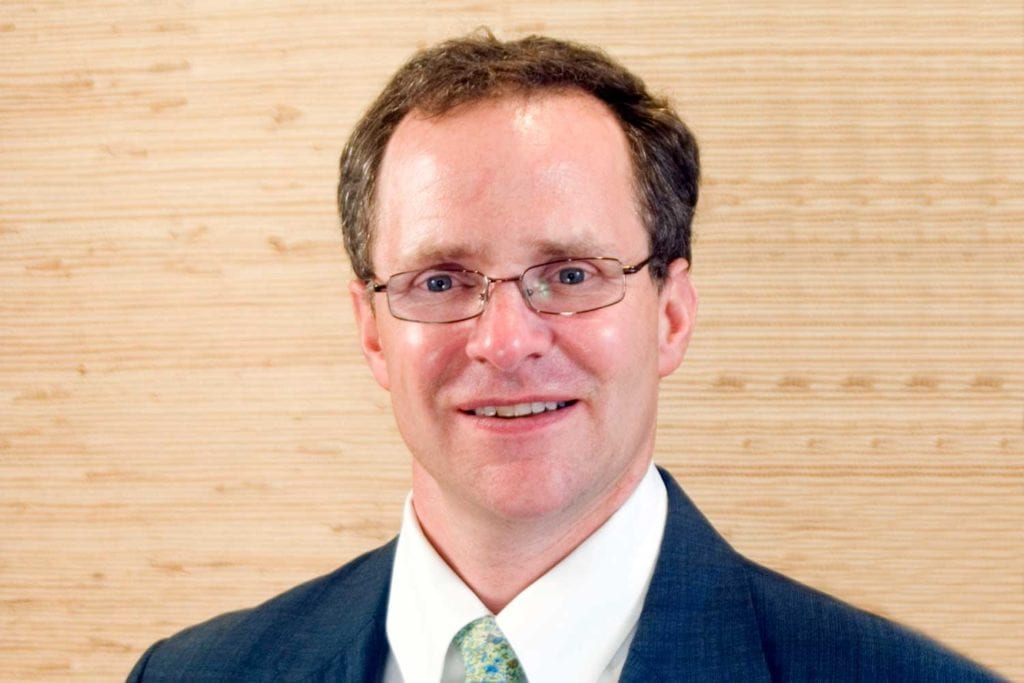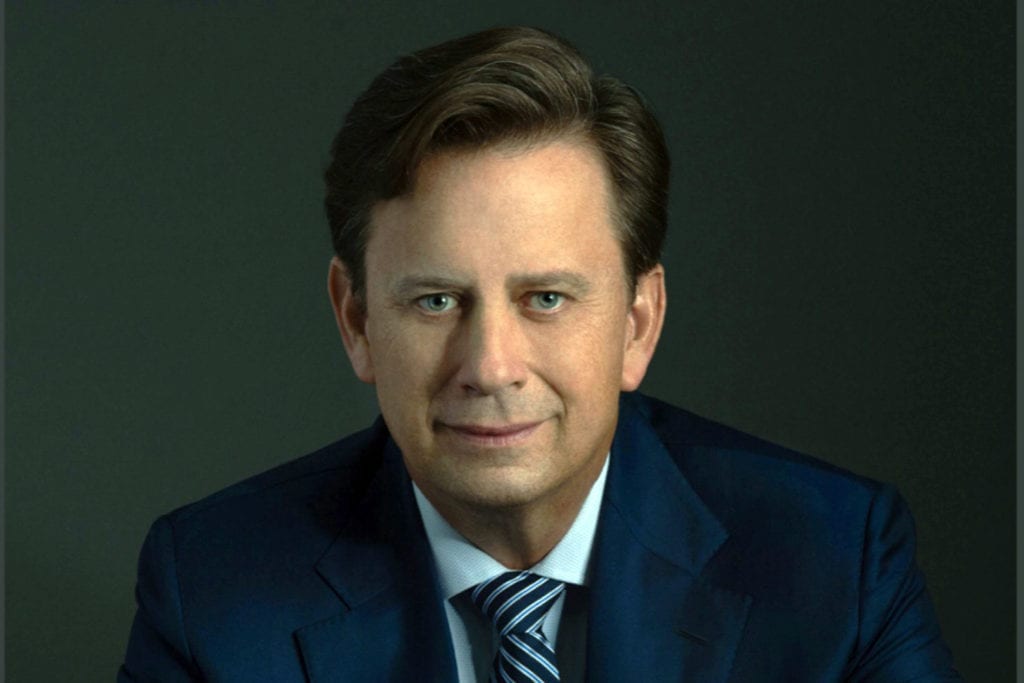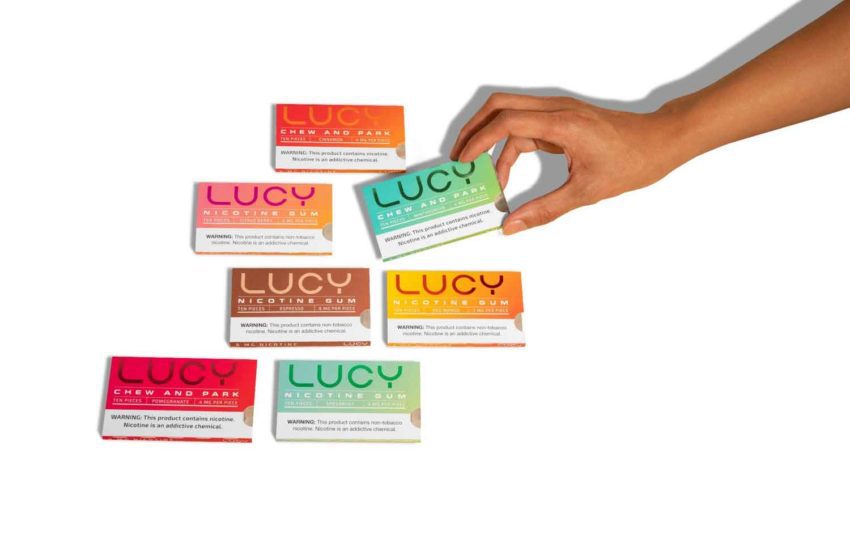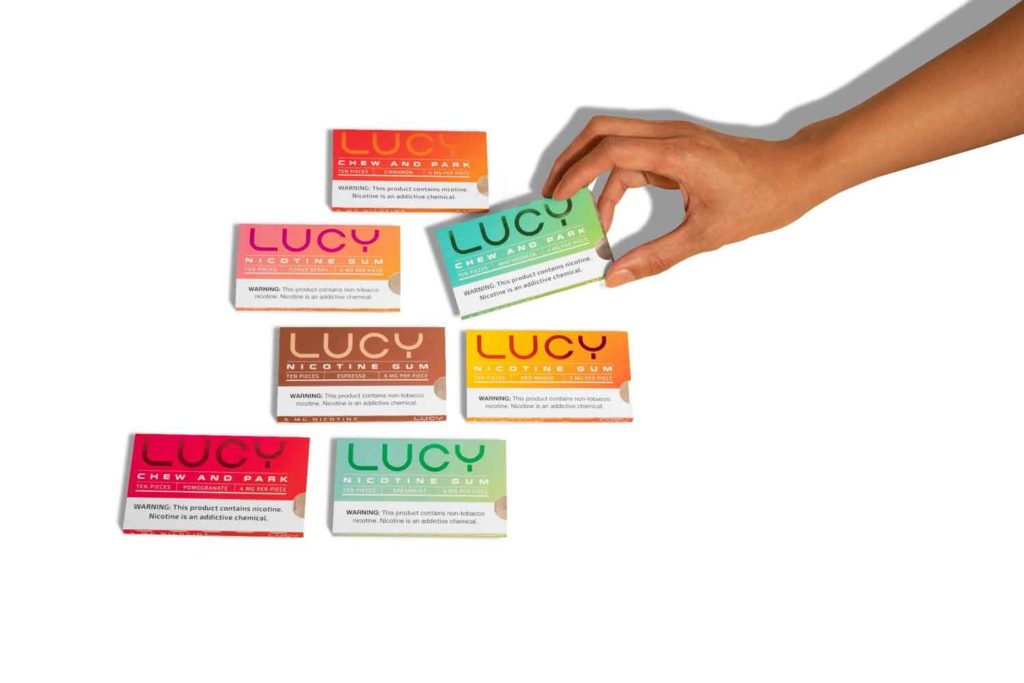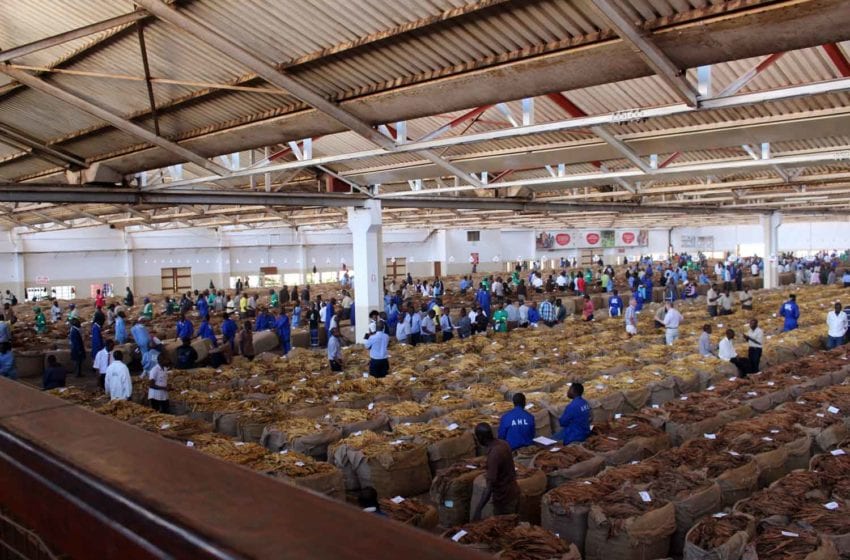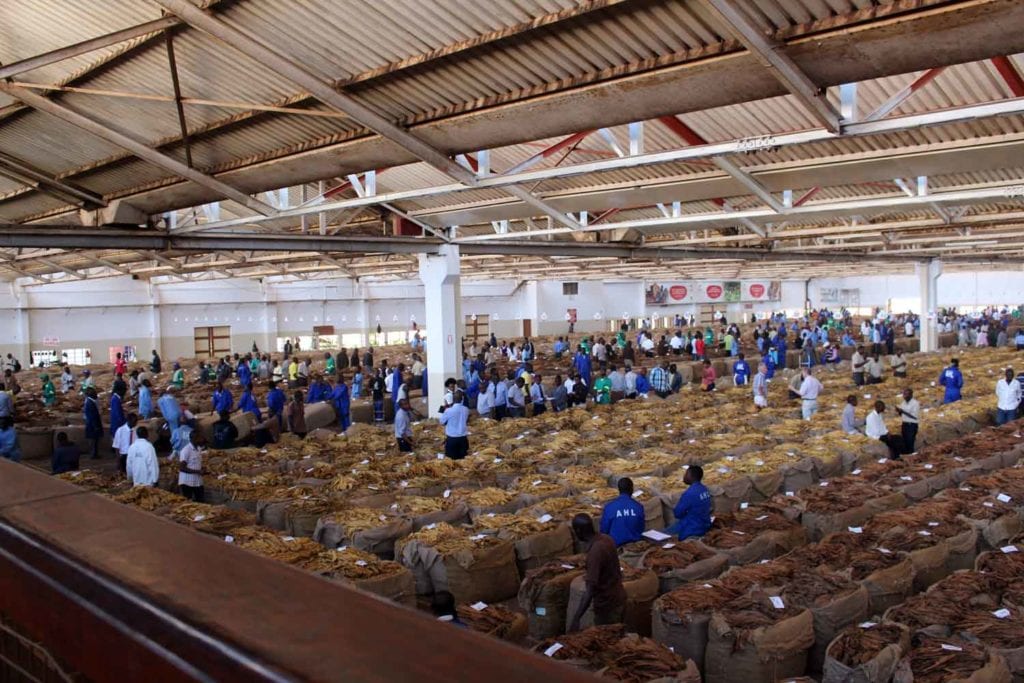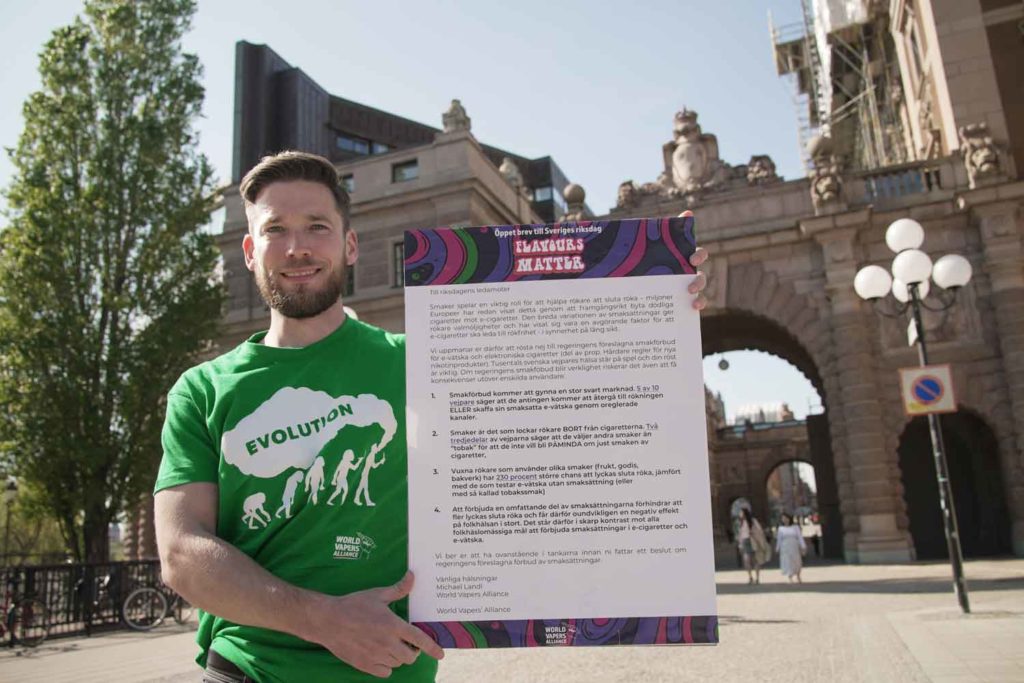
The global vaping advocacy group World Vapers Alliance (WVA) on May 24 delivered an open letter to the Swedish parliament urging policymakers to stop a pending ban on flavors
A day later, the WVA marched in front of the Parliament with the slogan “Flavours help smokers quit” and urged lawmakers to vote against the ban.
Earlier this year, the Swedish government introduced a bill that would prohibit all non-tobacco vape flavors in nicotine and non-nicotine products. If approved, the bill is set to enter into force on Jan. 1, 2023.
“I benefited firsthand from vaping and managed to stay smokefree for the last few years,” said Michael Landl, director of the WVA, in a statement. “Like most other smokers, I tried to find a way out of cigarettes—but nothing worked for me—the patches, the gums, the inhalers. Vaping—and especially combined with flavors—was my savior. And like me there are millions around the world who are healthier and lead a better life because of vaping.”
According to Landl, the ban on vape flavors will have disastrous consequences on public health:
“According to Yale School of Public Health, vaping flavored e-cigarettes are associated with a 230 percent increase in the odds of adult smoking cessation,” he said. “If vape flavors were banned, more than 150.000 swedes could be pushed back to smoking, which goes against any public health authority.”

